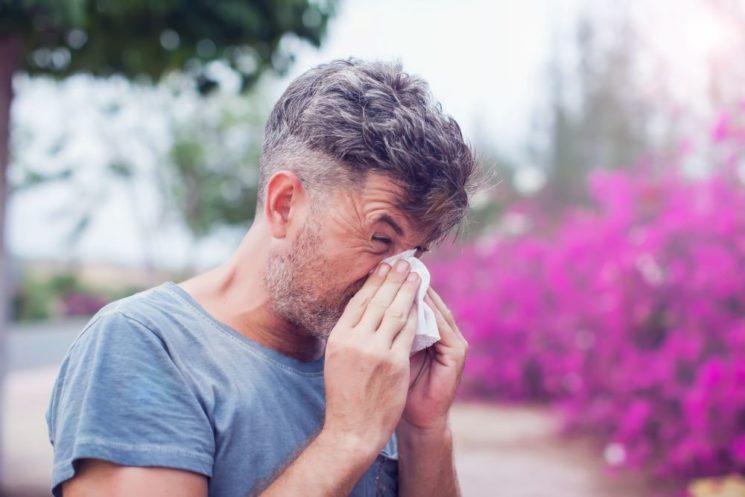
What is the skin barrier?
The skin is made up of several layers. The outermost layer is called the epidermis, which itself is made up of further layers. The outermost epidermis layer is called the stratum corneum – or, more informally, the skin barrier. This is the layer that is affected the most by cold weather.
The skin barrier is made up of cells called corneocytes, which are bound together by lipids including fatty acids, cholesterol, and ceramides.
The skin barrier runs slightly acidic, at a pH of around 4.7; the very thin slightly acidic film which forms on the surface of the skin is called the acid mantle. The acid mantle helps protect against the growth of bacteria, viruses, and fungi that could lead to infections and other skin conditions.
The skin barrier’s purpose is to prevent harmful toxins from entering the body, so it plays an important role in your overall health.
Why is my skin dry in winter?
Moisture is essential to keeping the skin barrier healthy. There are many reasons why the skin may lose excess moisture during the winter, including:
- indoor heating, which reduces humidity and leads to less moisture in the air
- hot baths and showers, which can dry out the skin
- harsh weather, which strips the skin of its natural, protective oils
Choose the right moisturiser for dry skin
To remedy dry skin, you must replenish your moisture levels. The easiest way to do this is through the use of moisturisers.
Moisturisers help to rehydrate the epidermis and prevent further moisture loss in the skin. If you’re looking to replenish dry skin, find a moisturiser with the following ingredients.
- Humectants, including ceramides, hyaluronic acid, glycerin, and aloe vera. These help attract moisture back into the skin.
- Emollients, including shea or cocoa butter, colloidal oatmeal, squalene, and triglycerides (lipids). These help to fill gaps in the skin where moisture has been lost.
- Occlusives, including silicones, oils, petrolatum, lanolin, and beeswax. These help to form a protective barrier on the skin, preventing moisture loss.
For best results, you should apply your moisturiser directly after a shower or bath; gently pat your skin dry and apply immediately, to help seal in moisture.
Avoid excessive heat
As enjoyable as a steaming hot bath or shower can be, they can have a detrimental effect on your skin’s moisture levels – try turning down the temperature to a lukewarm option instead. Similarly, avoid sitting too close to fires or heaters, as these draw moisture away from the skin.
Visit a dermatologist
If your dry skin isn’t improving with at-home treatment, it’s time to schedule an appointment with a dermatologist. Cromwell Hospital has a comprehensive dermatology service, which provides tailored treatment to meet your skin’s unique needs.
About the consultant
Dr Christina George is a consultant dermatologist at Cromwell Hospital, who is experienced in all aspects of general dermatology including eczema, psoriasis, acne, rosacea, hair loss, excessive sweating, melasma, skin rashes, and skin cancer.
Why Choose Us?
At Cromwell Hospital, we’re dedicated to safeguarding your skin health during the cold weather months. With a focus on personalised care and expertise, our team provides tailored solutions to combat winter dryness effectively. We prioritise your comfort and well-being, offering comprehensive guidance on skincare routines and products suited to your needs.
With our commitment to excellence and compassionate approach, Cromwell Hospital ensures you receive the highest standard of care. Trust us to keep your skin protected and radiant throughout the winter season. Choose Cromwell Hospital for expert skincare solutions that prioritise your health and happiness.



